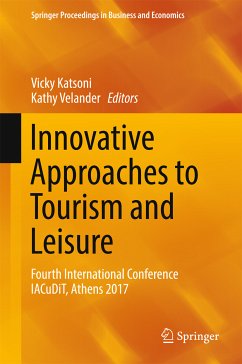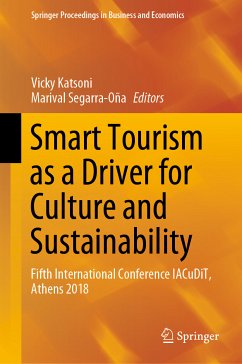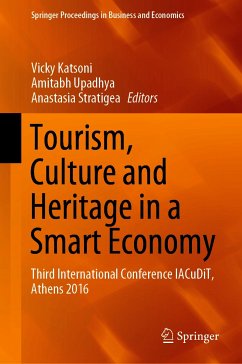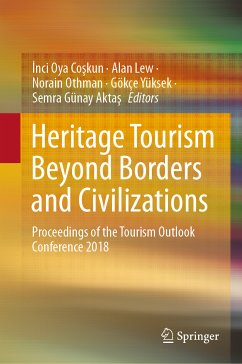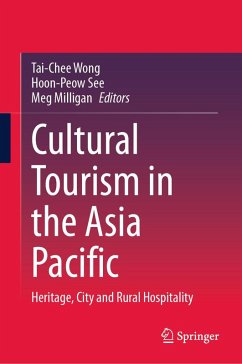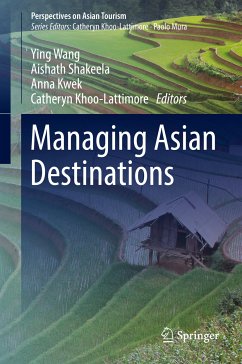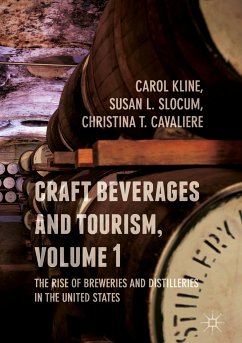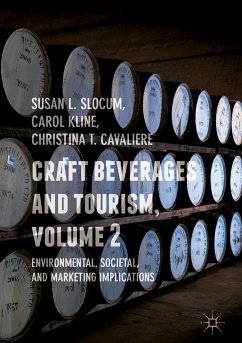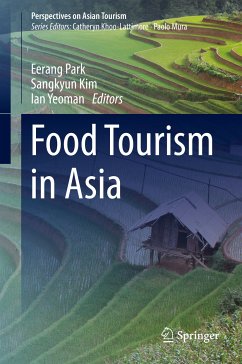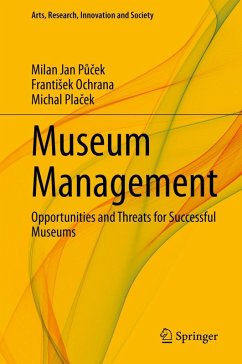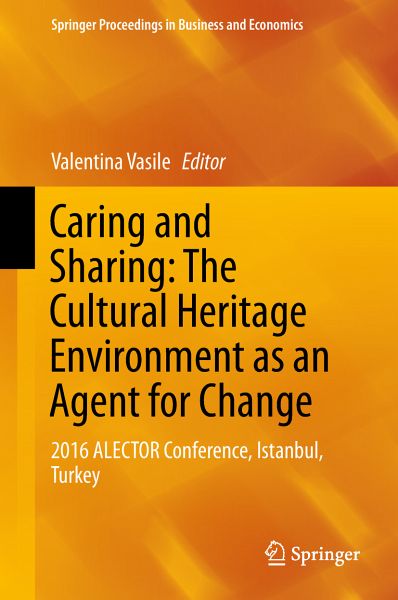
Caring and Sharing: The Cultural Heritage Environment as an Agent for Change (eBook, PDF)
2016 ALECTOR Conference, Istanbul, Turkey
Redaktion: Vasile, Valentina
Versandkostenfrei!
Sofort per Download lieferbar
167,95 €
inkl. MwSt.
Weitere Ausgaben:

PAYBACK Punkte
84 °P sammeln!
This proceedings volume explores the socio-economic dimension of the heritage sector from a broad, interdisciplinary perspective. Featuring contributions from the 2016 ALECTOR International Conference held in Istanbul, Turkey, this book presents current theoretical and empirical research related to such topics as: R&D and ICT in tourism; heritage products and services; climate change; finance and tourism; cultural communication; anthropological cultural heritage; and heritage management. Collectively, the papers presented in this book provides methodologies, strategies and applications to meas...
This proceedings volume explores the socio-economic dimension of the heritage sector from a broad, interdisciplinary perspective. Featuring contributions from the 2016 ALECTOR International Conference held in Istanbul, Turkey, this book presents current theoretical and empirical research related to such topics as: R&D and ICT in tourism; heritage products and services; climate change; finance and tourism; cultural communication; anthropological cultural heritage; and heritage management. Collectively, the papers presented in this book provides methodologies, strategies and applications to measure the socio-economic dimension of the heritage sector and also good practices in the heritage sector that drive regional, cultural and economic development and sustainability.
The EU Neighbourhood Info Centre (ENPI) Cross-Border Cooperation (CBC) Black Sea project "Collaborative Networks of Multilevel Actors to Advance Quality Standards for Heritage Tourism at Cross BorderLevel", or ALECTOR, focuses on different types of heritage assets as a means to invest in human capital and tourism innovation in order to achieve socio-economic development and cooperation with social partners in the Black Sea region. Featuring collaborations from Greece, Romania, Bulgaria, Moldova Ukraine, Georgia and Turkey, the project proposes a cognitive and educational framework for using a region's assets, which would guide final beneficiaries (regions, communities, SMEs) to identify, signify, valorize and manage their natural and cultural resources, in order to use heritage potential as a vehicle for tourism.
Presenting case studies of successful initiatives, the enclosed papers are divided into two parts:
. Part I: Economics of Heritage features innovative research results on the heritage and tourism topics from countries such as Bulgaria, Croatia, Russia, and Romania
. Part II: Best Practices features best practices, experiences, and promotion plans for cultural heritage through tourism from countries such as Bulgaria, Republic of Moldova, Turkey, Russia, and Romania
Dieser Download kann aus rechtlichen Gründen nur mit Rechnungsadresse in A, B, BG, CY, CZ, D, DK, EW, E, FIN, F, GR, HR, H, IRL, I, LT, L, LR, M, NL, PL, P, R, S, SLO, SK ausgeliefert werden.



